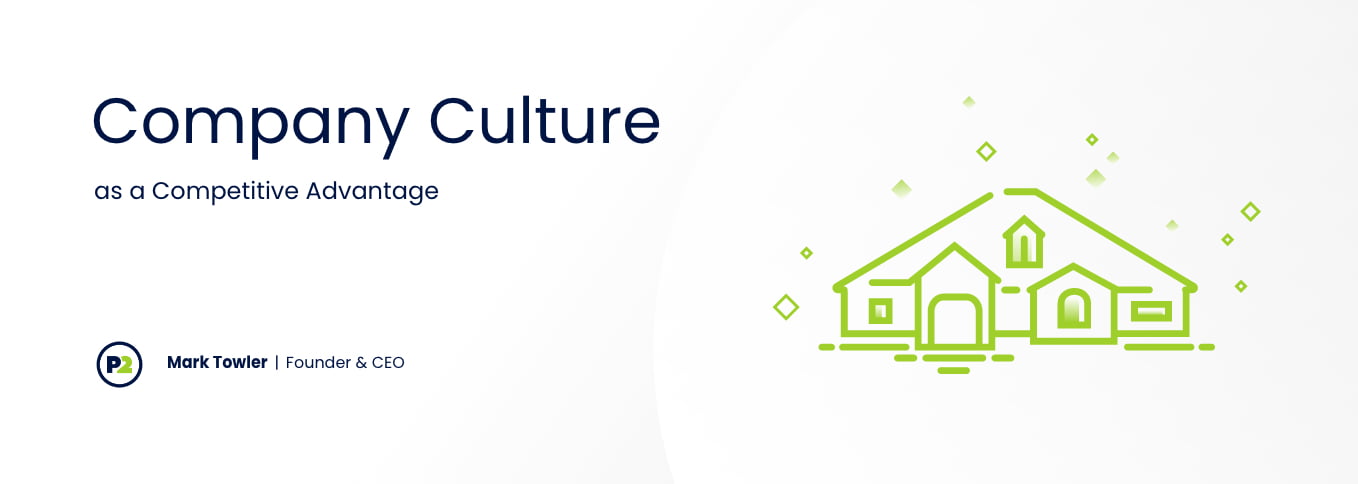
Company Culture as a Competitive Advantage
The inclusion of Phase 2 in Inc. magazine’s Best Workplaces list this year is a reflection of the company culture that we’ve fostered over 20 years. The saying, “your people are your most important asset” is somewhat of a cliché. But it doesn’t make it any less true. This is even more important in a services business where the effort and talent of our team creates what our customers buy.
Anyone in business will tell you that finding and retaining great people is hard. Because of this challenge, we spend significant time working on making Phase 2 a place great people want to stay. And stay for a long time. Attracting high-end talent and keeping them has become a hard-to-replicate competitive advantage for us.
Here’s a bit of how we do that.
Our Purpose
Each month, we have an all-hands meeting where we give an update on what’s going on with the business. The opening slide is always “Why are we here?” and includes our “why” or mission statement: “Our purpose is to have a positive impact on the people with whom we interact… our customers, our coworkers, and our community.”
Beyond building great software, our company culture includes always looking for how we can help. Sometimes it’s our client projects, sometimes it’s supporting a worthy nonprofit. But also making sure our team members can take all the time they need to tend to family matters. Making a difference doesn’t have to be a big, life-changing event – it can be small, positive acts that improve someone’s situation.
Our Cultural “Guidelines”
Company values can be defined at inception, but also evolve throughout the years. We have five stories from the early years of Phase 2 that define what we stand for as a company. These are the Phase 2 Rules. Like our purpose, at each company meeting, we talk about one of the rules – how it originated and its relevance. For some of our long-term employees, they’ve heard the stories behind these rules dozens of times. But even as we grow exponentially, the rules continue to be relevant and work to build our culture.
A key component of the Phase 2 Rules is that they are not just words on a slide or on our website. These cultural guidelines are used when making and following through on decisions both small and large. As a mentor of mine once told me, culture is what you tolerate. Are you going to allow team members to be rude to coworkers or customers? Well, that’s your culture because that’s what you tolerate. For us, by being consistent with following these guidelines over decades, in good times and bad, we now have a team of people that embrace and defend our company culture.
We Are Who We Are
Our approach to running this business is a reflection of who we are as people. Our norms and habits and ways in which we treat each other (which usually involves a great deal of irreverent humor) is consistent with our character, as a group and individually. In other words, we are authentic.
I’m not suggesting that the Phase 2 Rules are the right way for every company culture, but it’s the right way for us. We’re confident in who we are and we don’t try to be something we’re not. There are traits in other business owners and companies that I deeply admire, but it would feel hollow if we were to try to adopt those for us.
For example, some businesses have a set top-line revenue growth goal every year. By focusing on that, they have gotten consistently larger – and that’s admirable. For us, if growth means we need to dilute our talent pool or operate outside of our cultural norms, then we’re going to pass. Again, that’s NOT to say that consistently growing is a bad thing (it’s not). But for us, it’s not a core principle for who we choose to be.
Listening to the Team
Part of the authenticity of our leadership is our willingness to be transparent and listen to our team. Our annual “review” process is a bit non-traditional but has shown to be truly appreciated by team members. We sit down with each employee and have a conversation centered around five things from their perspective:
- What are we doing as a company we should keep doing?
- What are we doing as a company we should get better at?
- What are we doing that we should stop doing?
- What forms of compensation are important to you (salary, time off, training, etc.)?
- Are you enjoying what you’re doing and where do you want to go next?
We do not expect to only think about this once a year… in fact, we’re constantly asking ourselves those first three questions. But, we make sure that at least once per year, we go offsite and have this discussion individually. Getting away to have an honest conversation promotes comfort and candor.
When it’s all said and done, as a leader, it’s up to you to decide what you’re going to tolerate. From there, reinforce your beliefs with actions and most importantly, be authentic. Or, as William Shakespeare wrote:
This above all: to thine own self be true
And it must follow, as the night the day
Thou canst not then be false to any man
